SCHOOL HISTORY
300+
Years History and Education
The history of our school begins over 300 years ago with a Latin school, which the Catholic pastor Leo Hertiger, who worked in Steele, founded in 1697 with his own money.
In October 1854, the Latin school, which had hitherto been tied to the church, was rededicated to a secular rector’s school. Students who already knew Latin were prepared here by additional lessons for attending the grammar school.
The increasing coal mining on the Ruhr also provided new jobs in the then still independent town of Steele. The population was increasing and had increased tenfold by the end of the 19th century. As a result, the number of pupils was also increasing. The Steeler city council decided to build a new school. In 1877, the rector’s school moved to the building of today’s “Grend” on the corner of Westfalenstraße and Paßstraße.
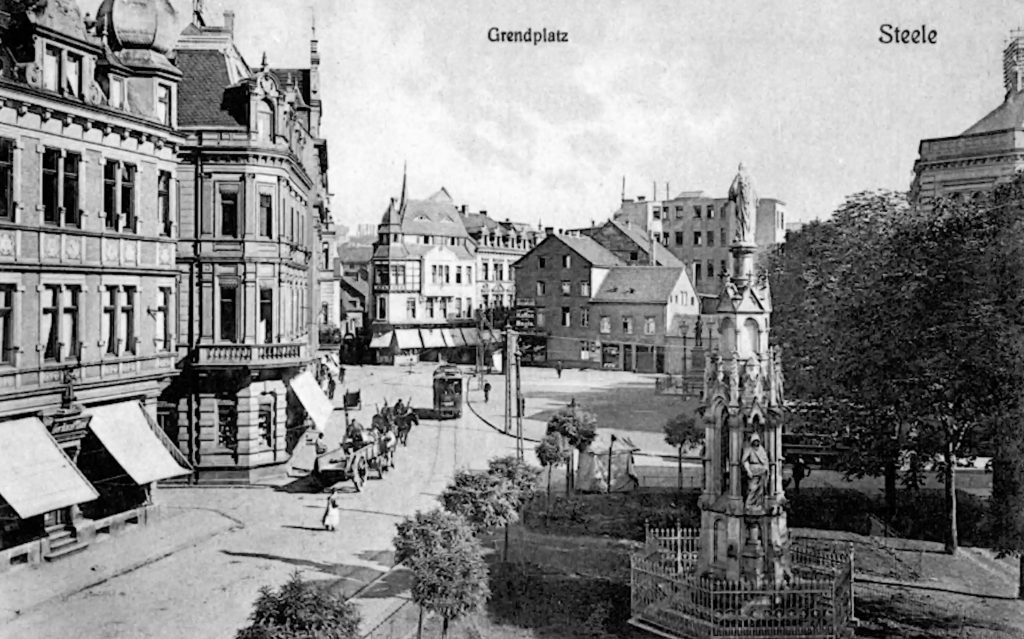
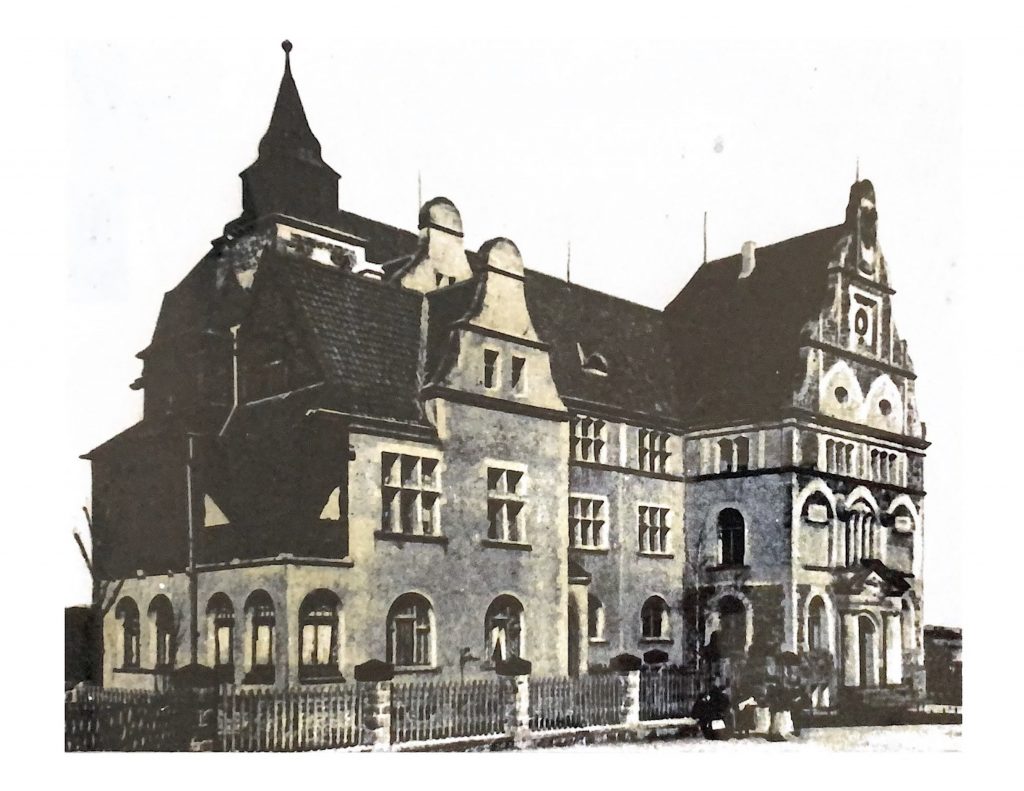
Towards the end of the 19th century, the school was expanded into a „Progymnasium“ and became a „Vollgymnasium“ – High School/ Grammar School – in 1901. At Easter 1904, the first eight students took their first Abitur there.
After three years of planning and construction, in May of the same year we moved into an urgently needed new building on Laurentiusweg, which still forms the main building of our school today.
In 1954, the Carl-Humann Gymnasium received permission to introduce mathematical-scientific subjects. For this purpose, a three-storey extension was approved, which has been used for teaching purposes since 1957.
In 1988, another building was added, but it was located 3 kilometers from the main building: the so-called Dependance, our outbuilding on Jacob-Weber-Straße. Here, the students of classes 5 and 6 (introductory level) are completely among themselves, have their own schoolyard, their very own classrooms.
Today, more than 1000 students are taught by over 80 male and female teachers at the Carl-Humann Gymnasium.
This was not always the case. At the end of the 1960s, the first female teachers were added. And from 1972 onwards, girls were also admitted to joint lessons with the boys.
Today, a colourful, international and cosmopolitan community of pupils and teachers learns and works together at our school. Through the European school support programme “Erasmus+” we are also in close contact and exchange with schools in Norway, Poland, Italy, France and Spain.
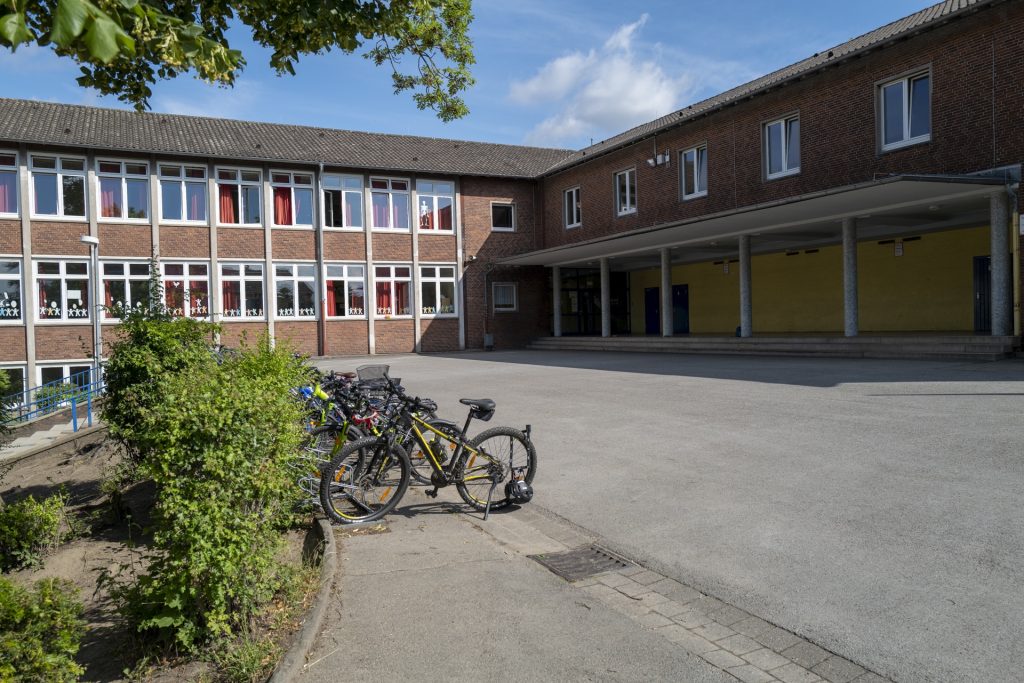
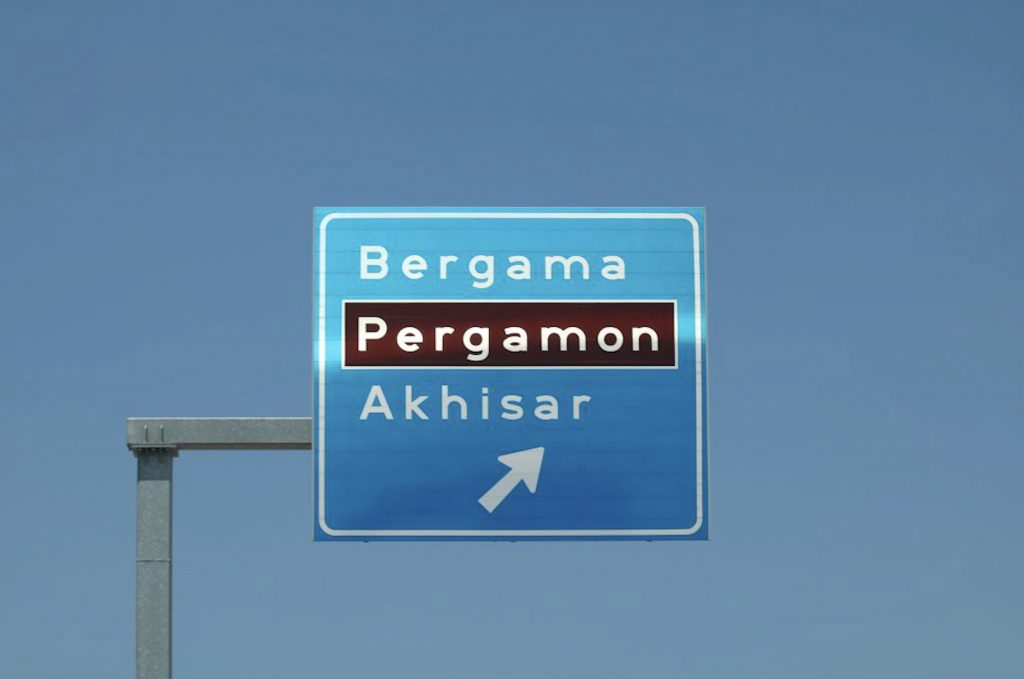
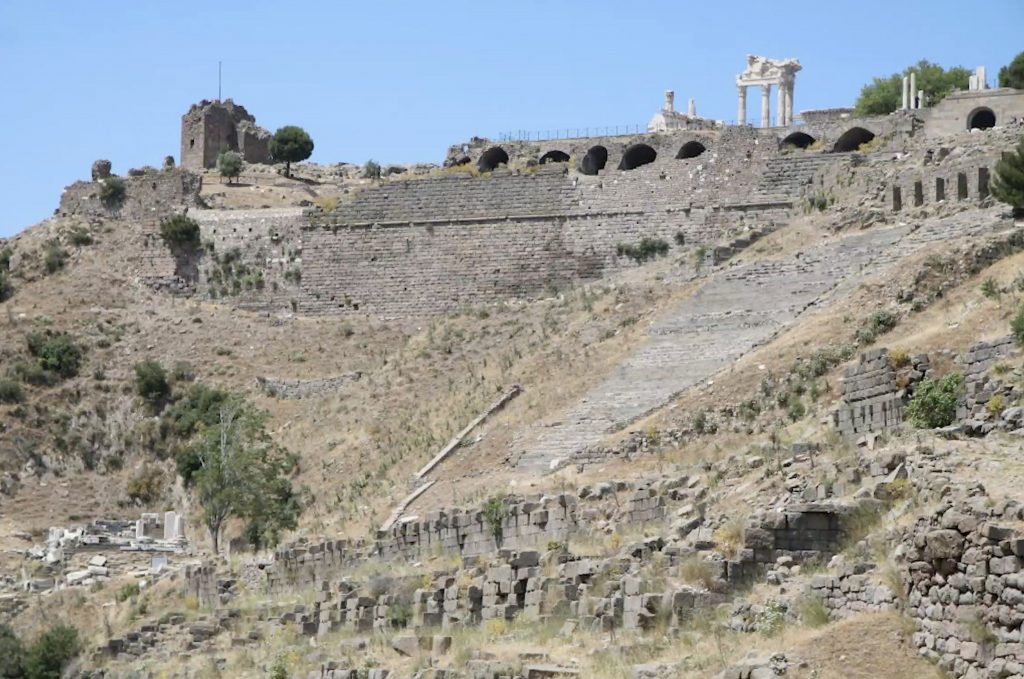
Our school is named after the engineer and archaeologist Carl Humann, born in Steele on January 4, 1839. The school has borne his name since 1935, which is also cast in stone above the entrance. The first name ,Carl, is written with a “K” above the school portal. This spelling is due to the National Socialist ideology, which Germanized the “C” to the “K”.
Carl Humann became known and famous for his discovery and excavation of the ancient Pergamon Altar at the end of the 1870s. Pergamon was already in the 3rd century BC a Greek city built on a mountain near the west coast of Asia Minor in today’s Turkey. Today the city is called Bergama and is located 80 kilometers north of Izmir. Carl Humann is buried there on the former castle hill.
The Pergamon Altar is also the logo of our school.
Today, the Pergamon Altar excavated by Carl Humann is located in the Pergamon Museum on Museum Island in Berlin.
In memory of the eponym, a bust of him is set up in the main building and in the dependance.
In addition to Carl Humann’s name cast in stone, three other words can be read above the entrance of our school: MUSIS – PATRIAE – DEO. The ARTS, the FATHERLAND and GOD are guiding words of an education as it was understood at the turn of the 20th century. Young people were to be educated in the spirit of a certain understanding of the world, marked by a deep love for the fatherland and God.
Today we understand these mottos as follows: MUSIS as an introduction to and the use of different sciences in order to better understand and assess ourselves and the functioning of our world and thus to remain capable of building the future. PATRIAE to understand that the dignity of every human being is inviolable. And DEO as a kind of empathy which understands that – despite all differences – our lives can only succeed in cooperation and mutual respect.
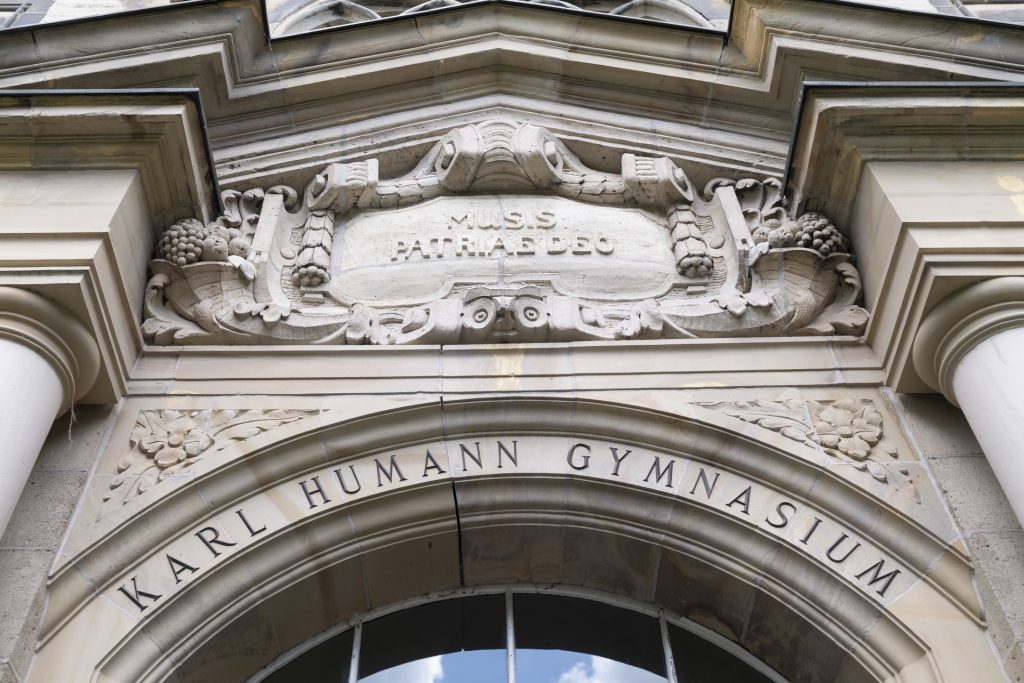
Against this background, we also offer our students a wide range of activities outside the classroom: from theatre to making music in the orchestra and in the band, to volleyball in the school-related volleyball club of the VV-Humann, as well as various social projects within the framework of School without Racism.
During the nine years, we offer a variety of ways to learn with and from each other, to try things out, to discover and cultivate the pupils`own talents and to make friends with other young people in Europe. As a reliable educational partner, we not only successfully accompany our students through their schooling and Abitur, we also help them to find their way safely into life and the world of work.
